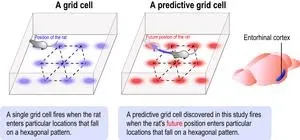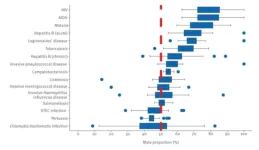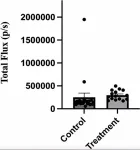(Press-News.org) Researchers at the University of Sheffield have discovered how a hospital superbug Clostridioides difficile (C.diff) can rapidly evolve resistance to vancomycin, the frontline drug used in the UK
Scientists found that in less than two months the bacteria could develop resistance to 32 times the initial antibiotic concentration
C.diff, a type of bacteria which often affects people who have been taking antibiotics, has been identified by the World Health Organisation as one of the top global public health threats, and is responsible for approximately 2,000 deaths annually in the UK
Scientists have discovered how the hospital superbug C.diff rapidly evolves resistance to the frontline drug used for treatment in the UK.
Clostridioides difficile (C. diff), a type of bacteria which often affects people who have taken antibiotics, is responsible for approximately 2,000 deaths annually in the UK.
Researchers from the University of Sheffield and the University of Manchester have found C. diff is able to evolve high levels of vancomycin resistance very quickly - in less than two months the bacteria could tolerate 32 times the normally effective antibiotic concentration.
Currently, the antibiotics used to treat C. diff damage beneficial gut bacteria, leading to a high reinfection rate—up to 30 per cent of patients treated with vancomycin experience a second infection within weeks, with the likelihood of further relapses increasing thereafter.
Despite vancomycin's critical role within UK healthcare, routine monitoring for resistance in clinical settings is lacking, so resistance may be emerging under the radar in hospitals. If widespread resistance were to arise it would remove this critical treatment option from UK healthcare.
Antimicrobial resistance (AMR) has been identified by the World Health Organisation (WHO) as one of the top global public health and development threats. It is estimated that bacterial AMR was directly responsible for 1.27 million global deaths in 2019 and contributed to 4.95 million deaths.
Jessica Buddle, PhD student at the University of Sheffield and lead author of the study, said: “Our findings highlight the need for vigilant monitoring of vancomycin resistance in UK hospitals. Unchecked resistance could contribute to the large number of patients who have a relapsing infection after successful treatment with vancomycin. More research is essential to inform healthcare policy and determine if vancomycin remains the best treatment option.
“Our ongoing work aims to understand the extent and mechanisms of resistance development, simulate these conditions within the complex human gut ecosystem, and collaborate with UK epidemiologists to identify potential resistance signatures in hospitals.
“These efforts are crucial to prevent a future where antibiotics are no longer a viable option for treating bacterial infections and infections that are readily treatable today, become life-threatening once again.”
Although this rapid evolution is concerning, resistant strains exhibited reduced overall fitness, potentially limiting their clinical threat. The resistant strains also commonly had defects in sporulation. Sporulation is essential for C. diff to transmit from one person to the next and to survive on surfaces in hospitals.
Future work will seek to understand this interplay between resistance and the ability of the bacteria to cause severe disease. Researchers will be able to leverage this knowledge to improve surveillance of emerging resistance in hospitals.
END
Scientists discover superbug's rapid path to antibiotic resistance
Scientists have discovered how the hospital superbug C.diff rapidly evolves resistance to the frontline drug used for treatment in the UK.
2024-08-15
ELSE PRESS RELEASES FROM THIS DATE:
New technique prints metal oxide thin film circuits at room temperature
2024-08-15
Researchers have demonstrated a technique for printing thin metal oxide films at room temperature, and have used the technique to create transparent, flexible circuits that are both robust and able to function at high temperatures.
“Creating metal oxides that are useful for electronics has traditionally required making use of specialized equipment that is slow, expensive, and operates at high temperatures,” says Michael Dickey, co-corresponding author of a paper on the work and the Camille and Henry Dreyfus Professor of Chemical and Biomolecular Engineering at North Carolina State University. “We wanted ...
Sleep resets neurons for new memories the next day
2024-08-15
ITHACA, N.Y. – While everyone knows that a good night’s sleep restores energy, a new Cornell University study finds it resets another vital function: memory.
Learning or experiencing new things activates neurons in the hippocampus, a region of the brain vital for memory. Later, while we sleep, those same neurons repeat the same pattern of activity, which is how the brain consolidates those memories that are then stored in a large area called the cortex. But how is it that we can keep learning new things for a lifetime without using up all of our neurons?
A new study, “A Hippocampal Circuit Mechanism ...
Navigating the future: brain cells that plan where to go
2024-08-15
Researchers from the RIKEN Center for Brain Science (CBS) in Japan have discovered a region of the brain that encodes where an animal is planning to be in the near future. Linked to internal maps of spatial locations and past movements, activity in the newly discovered grid cells accurately predicts future locations as an animal travels around its environment. Published in Science on August 15, the study helps explain how planned spatial navigation is possible.
It might seem effortless, but navigating the world requires quite a bit of under-the-hood brain activity. For ...
The brain creates three copies for a single memory
2024-08-15
The ability to turn experiences into memories allows us to learn from the past and use what we learned as a model to respond appropriately to new situations. For this reason, as the world around us changes, this memory model cannot simply be a fixed archive of the good old days. Rather, it must be dynamic, changing over time and adapting to new circumstances to better help us predict the future and select the best course of action. How the brain could regulate a memory’s dynamics was a mystery – until multiple memory copies ...
Breakthrough addresses sex-related weight gain and disease
2024-08-15
ITHACA, N.Y. -- A decline in estrogen during menopause causes changes in body fat distribution and associated cardiovascular and metabolic disease, but a new study identifies potential therapies that might one day reverse these unhealthy shifts.
The study, “Cxcr4 Regulates a Pool of Adipocyte Progenitors and Contributes to Adiposity in a Sex-Dependent Manner,” was published Aug. 5 in Nature Communications.
The researchers discovered that a receptor called Cxcr4, when blocked in mice, reduced the tendency of fat stem cells to develop into white fat, also called white adipose tissue. This treatment could potentially be combined with low doses of estrogen therapy to cut ...
As human activities expand in Antarctica, scientists identify crucial conservation sites
2024-08-15
A team of scientists led by the University of Colorado Boulder has identified 30 new areas critical for conserving biodiversity in the Southern Ocean surrounding Antarctica. In a study published Aug. 15 in the journal Conservation Biology, the researchers warn that without greater protection to limit human activities in these areas, native wildlife could face significant population declines.
“Many animals are only found in the Southern Ocean, and they all play an important role in its ecosystem,” said Cassandra Brooks, the paper’s senior author and associate professor in the Department of Environmental Studies and a fellow of the ...
Solutions to Nigeria’s newborn mortality rate might lie in existing innovations, finds review
2024-08-15
The review, led by Imperial College London’s Professor Hippolite Amadi, argues that Nigeria’s own discoveries and technological advancements of the past three decades have been “abandoned” by policymakers.
The authors argue that too many Nigerian newborns, clinically defined as infants in the first 28 days of life, die of causes that could have been prevented had policymakers adopted recent in-country scientific breakthroughs.
Led by Professor Amadi of Imperial’s Department of Bioengineering, who received the Nigeria Prize ...
Study highlights sex differences in notified infectious disease cases across Europe
2024-08-15
A study published in Eurosurveillance analysing 5.5 million cases of infectious diseases in the European Union/European Economic Area (EU/EEA) over 10 years has found important differences in the relative proportion of notified male versus female cases for several diseases. The proportion of males ranged on average from 40-45% for pertussis and Shiga toxin-producing Escherischia coli (STEC) infections to 75-80% for HIV/AIDS.
“Although this study was not able to fully explain the differences observed across countries and diseases, it offers some interesting leads,” said Julien Beauté, principal expert in general surveillance at the European ...
Nanobody inhibits metastasis of breast tumor cells to lung in mice
2024-08-15
“In the present study we describe the development of an inhibitory nanobody directed against an extracellular epitope present in the native V-ATPase c subunit.”
BUFFALO, NY- August 15, 2024 – A new research paper was published in Oncotarget's Volume 15 on August 14, 2024, entitled, “A nanobody against the V-ATPase c subunit inhibits metastasis of 4T1-12B breast tumor cells to lung in mice.”
The vacuolar H+-ATPase (V-ATPase) is an ATP-dependent proton pump that functions to control the pH of intracellular compartments ...
Detecting machine-generated text: An arms race with the advancements of large language models
2024-08-15
Machine-generated text has been fooling humans for the last four years. Since the release of GPT-2 in 2019, large language model (LLM) tools have gotten progressively better at crafting stories, news articles, student essays and more, to the point that humans are often unable to recognize when they are reading text produced by an algorithm. While these LLMs are being used to save time and even boost creativity in ideating and writing, their power can lead to misuse and harmful outcomes, which are already ...
LAST 30 PRESS RELEASES:
Fund for Science and Technology awards $15 million to Scripps Oceanography
New NIH grant advances Lupus protein research
New farm-scale biochar system could cut agricultural emissions by 75 percent while removing carbon from the atmosphere
From herbal waste to high performance clean water material: Turning traditional medicine residues into powerful biochar
New sulfur-iron biochar shows powerful ability to lock up arsenic and cadmium in contaminated soils
AI-driven chart review accurately identifies potential rare disease trial participants in new study
Paleontologist Stephen Chester and colleagues reveal new clues about early primate evolution
UF research finds a gentler way to treat aggressive gum disease
Strong alcohol policy could reduce cancer in Canada
Air pollution from wildfires linked to higher rate of stroke
Tiny flows, big insights: microfluidics system boosts super-resolution microscopy
Pennington Biomedical researcher publishes editorial in leading American Heart Association journal
New tool reveals the secrets of HIV-infected cells
HMH scientists calculate breathing-brain wave rhythms in deepest sleep
Electron microscopy shows ‘mouse bite’ defects in semiconductors
Ochsner Children's CEO joins Make-A-Wish Board
Research spotlight: Exploring the neural basis of visual imagination
Wildlife imaging shows that AI models aren’t as smart as we think
Prolonged drought linked to instability in key nitrogen-cycling microbes in Connecticut salt marsh
Self-cleaning fuel cells? Researchers reveal steam-powered fix for ‘sulfur poisoning’
Bacteria found in mouth and gut may help protect against severe peanut allergic reactions
Ultra-processed foods in preschool years associated with behavioural difficulties in childhood
A fanged frog long thought to be one species is revealing itself to be several
Weill Cornell Medicine selected for Prostate Cancer Foundation Challenge Award
Largest high-precision 3D facial database built in China, enabling more lifelike digital humans
SwRI upgrades facilities to expand subsurface safety valve testing to new application
Iron deficiency blocks the growth of young pancreatic cells
Selective forest thinning in the eastern Cascades supports both snowpack and wildfire resilience
A sea of light: HETDEX astronomers reveal hidden structures in the young universe
Some young gamers may be at higher risk of mental health problems, but family and school support can help
[Press-News.org] Scientists discover superbug's rapid path to antibiotic resistanceScientists have discovered how the hospital superbug C.diff rapidly evolves resistance to the frontline drug used for treatment in the UK.








